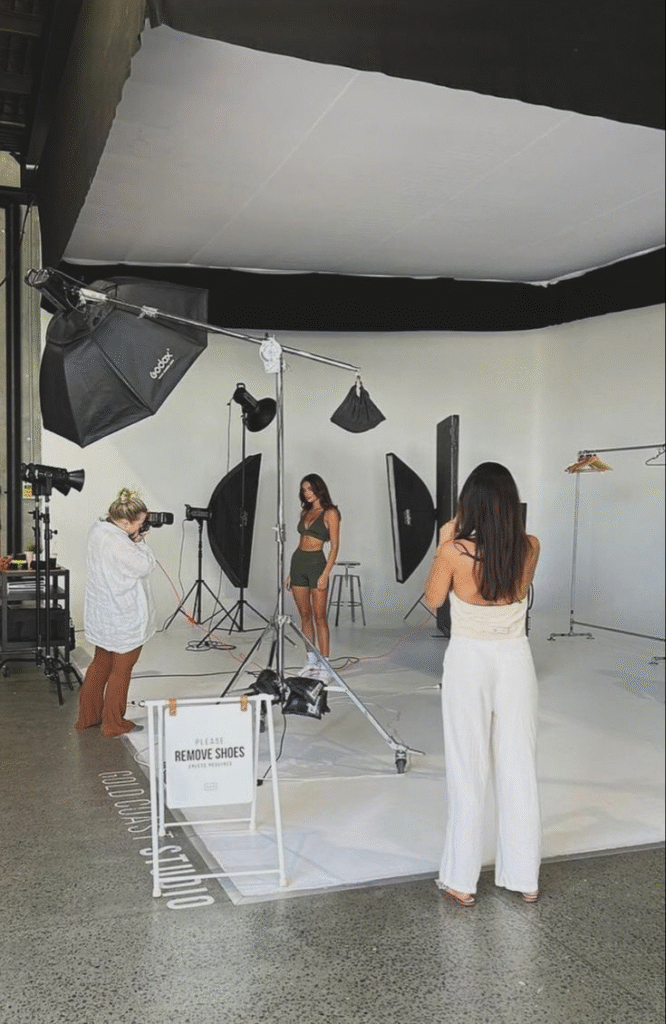Flashback to the time you got addicted to that one YouTube channel for its relatable sketches and situational humour. Over the years, you observe it become an internet sensation with millions of followers. One day, one of your favourite characters accredits a certain app for his success. You decide to give it a try, after all, it’s your bias swearing by it.
With the rise of social media-driven lifestyle, influencer-marketing has become the new-age replacement of advertisements. As a result, it has become increasingly difficult for viewers to distinguish between genuine endorsements and paid promotions. This naturally poses the question: do consumers have a right to know whether their favourite influencers have a “material interest” in the products they endorse?

The case of Negreanu v. Revolve Group, Inc
In Negreanu v. Revolve Group, Inc. a class action suit was filed in April 2025, in the Central District Court of California by Ligia Negreanu, a customer of Revolve, an e-commerce fashion company. The plaintiff sued Revolve Group Inc., its affiliated companies and a group of influencers for allegedly engaging in fraudulent marketing practices, including promoting products without fully disclosing that they were compensated for endorsing the brand and artificially inflating prices of Revolve products. The plaintiff claimed that while full disclosure was made by influencers in case of other brands, this was not followed in the case of Revolve. Revolve’s actions were argued to be a form of “disguised advertising”, and consequently to be in violation of Federal Trade Commission’s “Guides Concerning Use of Endorsements and Testimonials in Advertising” (“Endorsement Guides”).

The Plaintiff alleged that the influencers had engaged in consumer deception by providing small disclosures that made it “almost impossible for a social media user to discern the fact that the post was sponsored”. The plaintiff pointed out that Revolve’s products were being sold at a rate which was 10 to 40% more than the price of the same items sold by competitors and this was possible only because the hidden advertising made it seem more desirable. It was contended that this was a case of unjust enrichment (by the Florida residents who purchased products from REVOLVE) and negligent misrepresentation (by the Nationwide class comprising all the United States residents that purchased products from REVOLVE). Further, the complaint noted that the National Advertising Division (a self-regulatory system in the advertising industry in the United States) had itself recommended that Revolve take steps to ensure that its influencers’ posts make clear the influencers’ material connection to the brand in compliance with the endorsement guidelines.
The claims were made invoking state consumer protection laws in Florida and California, including Florida Deceptive Trade Practices Act (FDUTPA), Consumers Legal Remedies Act (CLRA) (California), California’s Unlawful Business Practices Act (UCL) and False Advertising Law among others.
Claims can be made only based on the agreed terms and conditions: The defendant argued that the purchase was made after agreeing to the terms and conditions provided by the plaintiff. No evidence was presented by the defendant to suggest to the contrary. Further it was pointed out that the Terms of Service presented during the checkout provided for an arbitration clause, included a mutual class action waiver and the right to pursue available damages.
Eventually, the court in its order dated 17th September, 2025 concluded that the matter fell well within the scope of the arbitration clause mentioned in the Terms of Service. Claims of inconspicuousness and unconscionability were dismissed as the evidence suggested that the T&C were clearly stated to the customers during checkout and were mutually agreed upon by both parties. Accordingly, the matter was referred for arbitration.
Class action suits: a warning for influencers?
Revolve is not the only company to be hit by a class action suit in 2025. A $ 150 million class action suit was filed against the clothing brand ALO and several influencers for being allegedly engaged in paid promotion of products without full disclosure of the material connection between the defendants. The plaintiffs argued that they purchased products from ALO after they viewed Instagram posts of influencers endorsing them, without being aware that they were in fact paid promotions, citing that this was a deceptive marketing strategy. Likewise, leading fashion company, Shein and the popular energy drink company, Celsius have been embroiled in similar suits for falling short of disclosure standards under the FTC endorsement guidelines.

What’s in the law: FTC Endorsement guidelines to keep in mind
§ 255.5 of the FTC Endorsement guidelines explicitly provides that any connection between the seller and the endorser that “might materially affect the weight or credibility of the endorsement” must be disclosed “clearly” and “conspicuously”. Examples of “material connection” may include receiving payment or promise of compensation or some other material benefit in exchange for the endorsement, receiving products free of cost, contractual payment in exchange for giving a good review, owning shares in the company, receiving a part of the gross product sales or other incentives. If the endorser is presented as an expert directly or by implication, then he/she must possess the necessary expertise in the subject of endorsement (§ 255.3 of the guidelines).
The Indian scenario
On 20th January 2023, a set of guidelines were issued by the Department of Consumer Affairs namely ‘Endorsement Know-hows!’ aimed at regulating endorsements by celebrities, influencers, and virtual influencers (computer-generated avatars with human likeness). Although not officially notified under the Consumer Protection Act, the guidelines have been drafted in accordance with the Consumer Protection Act, 2019 (and its allied rules, the Guidelines for Prevention of Misleading Advertisements and Endorsements for Misleading Advertisements, 2022 (“Guidelines on Prevention of Misleading Advertisements”).
Similar to the FTC guidelines, ‘Endorsement Know-Hows’ calls for full disclosure of material connection between the influencer and the brand. The disclosure is mandated to be simple and in the same language as the endorsement. Disclosures may be done by using terms like “sponsored”, ‘paid promotion” etc. They must be conspicuous and made clearly visible to the viewers: superimposed on images in pictures, included in both audio and visual form in videos(disclosure label must be visible for a minimum duration of 3 seconds for a 15 second video, entire duration of video for videos longer than 2 minutes) and displayed in the beginning and the end during live streams (disclosure is to be included in captions if post is visible even after the live stream ends). Additionally, influencers are expected to exercise “due diligence” in assessing the authenticity of the products and services they promote. Penalties for violation is as prescribed under section 89 of the Consumer Protection Act, 2019 (Punishment for false or misleading advertisement) which may extend up to ten lakhs, and may amount up to fifty lakhs for subsequent violations.
According to a recent study conducted by the self-regulatory body ASCI (Advertising Standards Council of India), among the influencers featured in ‘Forbes India’s Top 100 Digital Stars’, 2024), 69 percent failed to adhere to the standards of disclosure, with fashion and telecom products being the top categories with the most violations. This clearly illustrates that though the law is in place, enforcement has not hit the mark. In comparison, to social media platforms non-compliance in the television and print industry was observed to be extremely low, ASCI identified stronger regulation in the television and print industry as a potential reason for lesser violations.
Given that social media platforms are a thriving hub of human liberty and creativity, stringent restrictions may be detrimental. Therefore, influencer and celebrities must step up and maintain an internal compliance mechanism, ensuring that all endorsements are ethical and transparent while respecting their viewers’ right to be informed.

Endorsement vis-à-vis personality rights
Influencer marketing is a double-edged sword. The identity of the brand and the influencer are not mutually exclusive, such that any dip in credibility of the influencer can affect the brand image and vice versa. This issue is inextricably tied to the personality rights of the influencer or celebrity in question.
Recently, the Delhi High Court issued an injunction order in favour of Aishwarya Rai Bachan, Bollywood actor and former Miss World, restraining the defendants from unauthorized use of the plaintiff’s personality rights and preventing them from passing off their goods and services as endorsed by the plaintiff. The infringing acts included unauthorized sale of merchandise (including T-shirts, coffee mugs, and posters) using the plaintiff’s name and images, operation of organisations misrepresenting the plaintiff as the chairman, dissemination of YouTube videos and shorts that included AI- generated deepfakes of the plaintiff appearing in inappropriate settings, operation of AI chatbots that exploited the plaintiff’s likeness to engage with its users in conversations carrying a sexual undertone and obscene content.
It was the plaintiff’s case that she had suffered “incalculable loss to her good will and reputation” as result of the defendants’ infringement of her personality rights. Further, the defendants’ acts violated her right to endorsement and were in conflict with her existing contractual obligations with various third-party entities. The plaintiff also noted that in Anil Kapoor v. Simply Life India( 2023 SCC OnLine Del 6914) the court had heldunauthorized use of celebrity persona by third parties to be illegal, citing that the celebrities’ right to endorsement is a part of their right to livelihood.

The court, while upholding the plaintiff’s claims, observed that unauthorized use of the identity of a famous personality not only causes commercial detriment but also impacts his/ her “right to a dignified life” including the right to privacy. Therefore, any infringement of the plaintiff’s personality rights that can cause public deception will also negatively impact the reputation that the plaintiff has built over the years. Based on these findings, the court granted an ex-parte interim injunction order, restraining the defendants from using the name “Aishwarya Rai Bachchan”, the acronym “ARB”, her image and likeness, and any other unique identifying attributes across all mediums. Sale, endorsement and dissemination of merchandise exploiting the plaintiff’s persona were also restricted. Additionally, infringing URLs on YouTube and other platforms were directed to be identified and taken down within 72 hours of receiving notice.
As India lacks a codified law for personality rights and relies on the constitution and common law, this case has set a significant precedent particularly in the era of generative AI. In contrast, countries such as Germany, Japan and the US have already codified personality rights as part of statutory law.

Recently, the e-commerce company Shopify was forced to take down a design template from its website after food influencer Molly Baz accused the company of using AI-generated images of her likeness for promotions. Another fresh development that took the world by storm was the introduction of the AI actress Tilly Norwood, which has raised unprecedented questions regarding personality rights of AI. As AI increasingly seeks to replace humans, the million dollar question becomes: where do we set the bar? The evolving jurisprudence in this arena suggests that India may soon have to adopt stricter and well-defined regulations in the face of emerging challenges.
Know thy limits: the way forward
The ARB and Molly Baz cases are signs that moving forward, such AI- personality- consumer rights clashes will rise, particularly in the face of new technologies and trends such as Gemini’s AI-generated celebrity images and Snapchat’s face-swap filters. Given this conundrum, it falls on public personalities to exercise responsibility and engage in genuine promotions while consumers need to stay alert in distinguishing authentic endorsements from deceptive marketing.








![Demna woke up and chose violence!!!
Gucci Milan Fashion Week Fall 2026, Demna’s debut Runway ✨🙇🏻♀️💋
[Demna, Gucci, Milan Fashion Week, Runway, Fashion, Italy, Let The Raven Talk]](https://lettheraventalk.com/wp-content/plugins/instagram-feed/img/placeholder.png)
